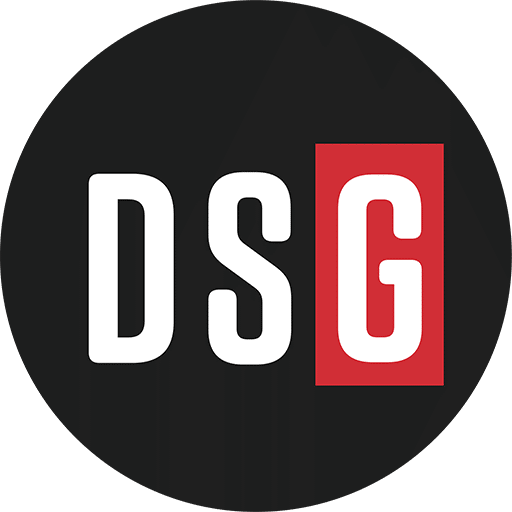In an industry long seen as essential but unglamorous, wholesale distribution is suddenly attracting the spotlight. Over the first five months of 2025, more than 60 mergers, acquisitions, and equity investments—totaling over $5 billion—have surged into the sector, according to PitchBook and industry sources. That’s a record pace, underscoring how rapidly distributors are transforming from old-line middlemen to high-value, tech-driven platforms.
“Distribution used to be a sleepy corner of the industrial economy—plenty of volume, not much velocity,” said Kevin McIntyre, managing director at Bain & Company. “That’s changed. Today, technology, capital, and strategic focus are pouring into this sector because it’s finally recognized as critical infrastructure.”
From Fragmented to Focused
Traditionally a fragmented, low-margin business, wholesale distribution is being remade by three converging forces: digital acceleration, shifting ownership models, and a race for supply chain control. Distributors are no longer just moving goods. Instead, distributors are modernizing operations, upgrading customer experiences, and building scale through aggressive mergers and acquisitions.
In January and February alone, distributors announced 44 deals—22 per month—across sectors from construction materials and electrical parts to janitorial goods and foodservice. Many sellers are family-owned businesses responding to rising complexity and succession pressures. On the buy side, regional players are scaling up, and global firms are targeting strategic acquisitions to fill capability gaps and future-proof their supply chains.
QXO’s Billion-Dollar Bet on Roofing
One of the year’s largest and most emblematic transactions came in March when QXO Inc. acquired Beacon Roofing Supply for $11 billion. QXO, backed by serial dealmaker Barry Litwin and operating under the umbrella of Starwood Capital, has been building a next-generation distribution platform from the ground up. The Beacon deal gives it immediate national scale, a deep contractor customer base, and a pathway to digitize a traditional analog industry.
The move is part of QXO’s broader roll-up strategy, aiming to acquire dozens of specialty distributors and integrate them with advanced software and automation. Executives say the goal is to streamline fragmented supply chains, introduce dynamic pricing tools, and offer e-commerce experiences more in line with modern B2B buyer expectations.
WinSupply Builds Regional Strength
Ohio-based WinSupply has also been active, acquiring three regional plumbing and HVAC distributors within a single month this spring. The privately held company has long used a decentralized model, empowering local owners while backing them with centralized resources. The latest deals expand WinSupply’s presence in fast-growing Sunbelt markets and deepen its capabilities in commercial HVAC systems segment, seeing double-digit growth driven by real estate and energy efficiency demand.
By absorbing regional players, WinSupply strengthens both its buying power and logistics infrastructure, positioning itself to compete with national rivals and support local contractors with just-in-time delivery and project consulting services.
Motion Industries Moves into Automation
Meanwhile, Motion Industries, a division of Genuine Parts Company, is expanding into high-tech territory. In April, the company acquired Advanced Control Solutions, a $150 million distributor specializing in robotics, sensors, and industrial automation. The move reflects Motion’s strategy to diversify beyond mechanical parts into faster-growing segments tied to factory modernization and Industry 4.0.
“Automation is the future of manufacturing, and distributors need to be part of that value chain,” a Motion executive said following the deal. “This acquisition gives us access to a customer set that is evolving fast—and looking for partners who can deliver more than just components.”
Technology Takes Center Stage
Tech-focused investment is reshaping the landscape beyond traditional consolidation. GrubMarket, a software and logistics firm serving food distributors and grocers, raised $50 million this spring at a valuation north of $3.5 billion. The company’s back-end platform uses AI to optimize inventory, route planning, and procurement—capabilities that are increasingly attractive to regional food distributors under margin pressure.
Investors including Liberty Street Funds and Pegasus Tech Ventures see GrubMarket as a blueprint for how digital-native platforms can redefine physical distribution. “It’s not just about moving produce,” said Lisa Quinn, partner at CBH Capital. “It’s about creating the operating system for distribution—and that’s scalable across multiple sectors.”
Private Equity Pours In
Private equity has returned to the sector with vigor. Beyond QXO, Platinum Equity acquired R&B Wholesale Distributors, a southern California firm focused on appliances and HVAC systems. The firm plans to modernize R&B’s logistics network and introduce AI-powered inventory tools to reduce overhead and improve customer responsiveness.
At the same time, distributors like Kaman Corp. are using acquisitions to pivot into new niches. Long known for aerospace and defense, Kaman acquired Applied Industrial Technologies this spring to gain traction in hydraulics and automation systems—a move that further blurs the line between industrial tech and traditional distribution.
What’s Driving the Boom?
Several forces are driving the sector’s red-hot deal pace:
- Digitalization: B2B buyers increasingly expect Amazon-like experiences. Distributors are investing in e-commerce, AI tools, and real-time inventory systems.
- Economies of scale: Rising labor and shipping costs are pushing distributors to centralize procurement, streamline warehouses, and optimize delivery routes.
- Private capital: With record levels of dry powder, private equity firms view distribution as a platform-rich environment, offering recurring revenue and low capital intensity.
Distributors are also adding new C-suite roles—like chief digital officer and data scientist—as they adopt warehouse automation, customer portals, and route optimization software. “It’s the biggest cultural shift this industry has seen in a generation,” said McIntyre.
What’s Next?
Analysts expect the second half of 2025 to continue the trend. Digitally native platforms are drawing interest in verticals like medical supplies and industrial parts, while sustainability—long a secondary concern—is moving up the agenda. Distributors are now investing in carbon tracking, eco-packaging, and electrified delivery fleets to meet customer and regulatory demands.
The sector entering 2025 looked quite different to the one emerging today. Larger, smarter, and more tech-savvy firms are redefining what it means to be a distributor.
“Distributors are no longer just necessary—they’re strategic,” said McIntyre. “The ones that invest in technology, scale, and resilience are the ones who will define the next chapter of this industry.”
Don’t miss any content from Distribution Strategy Group. Join our list.


